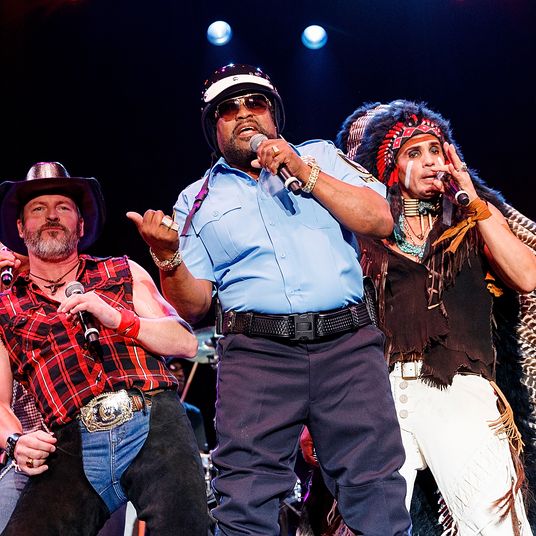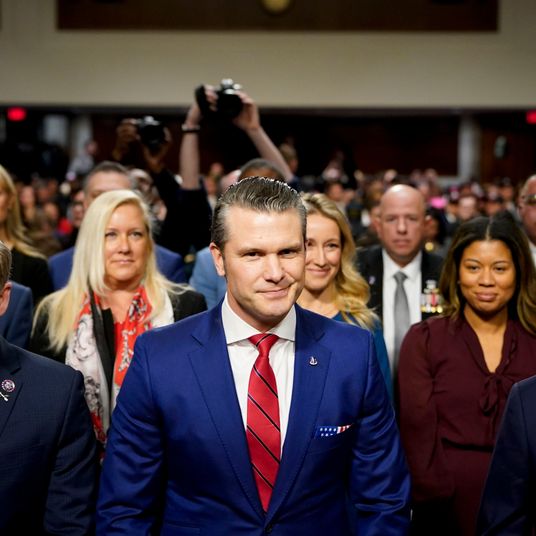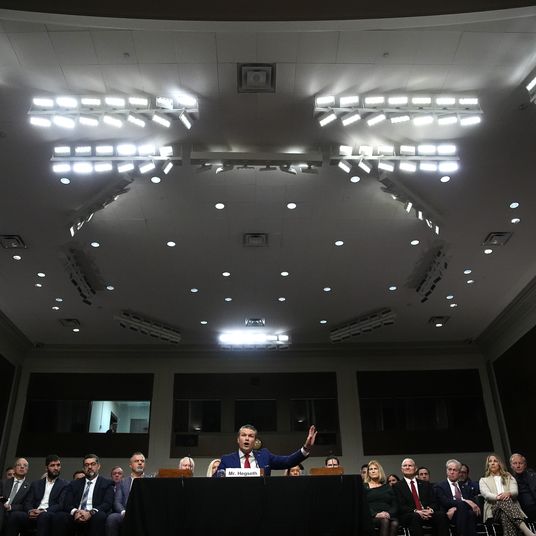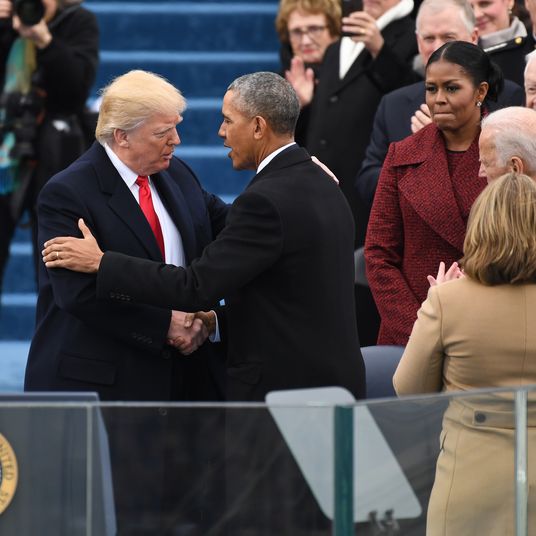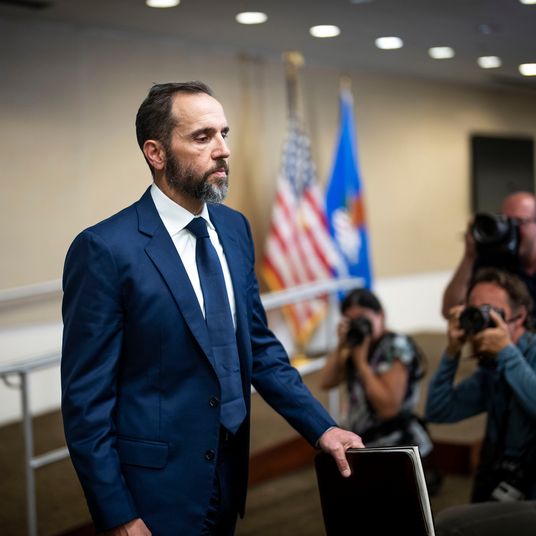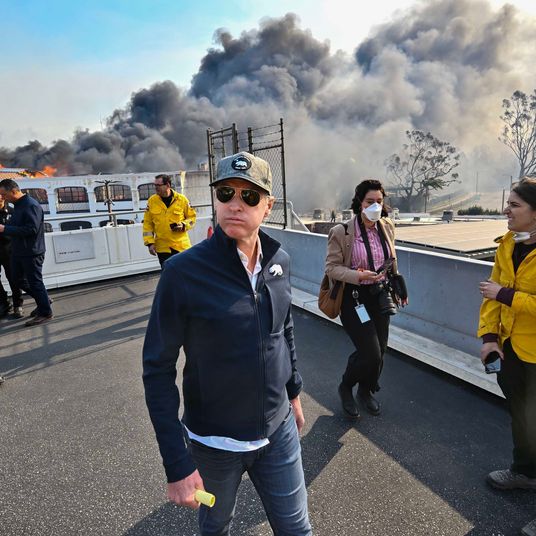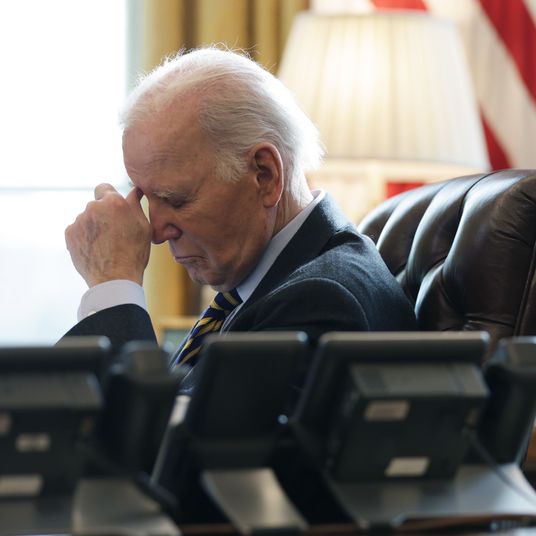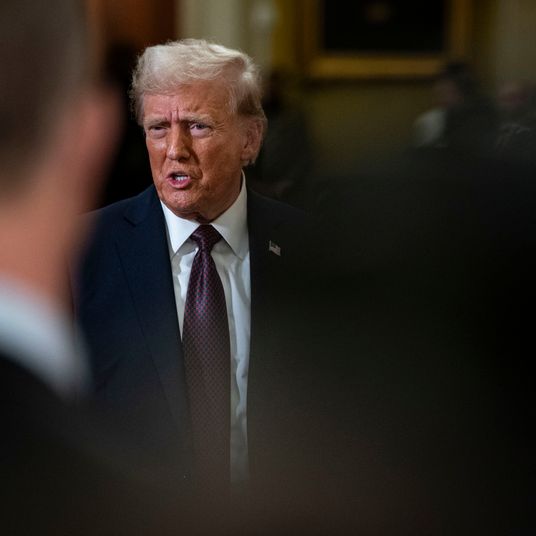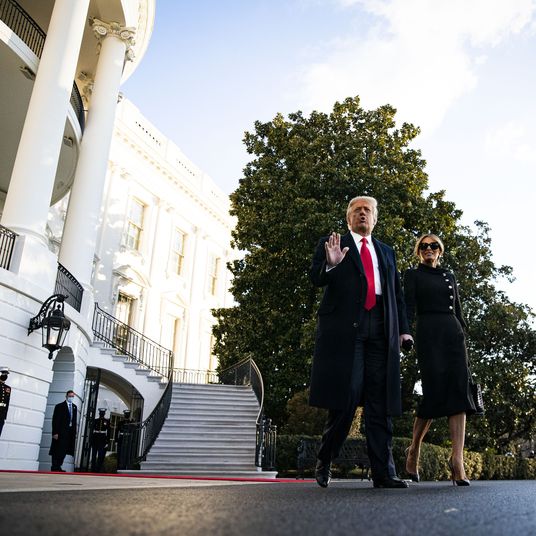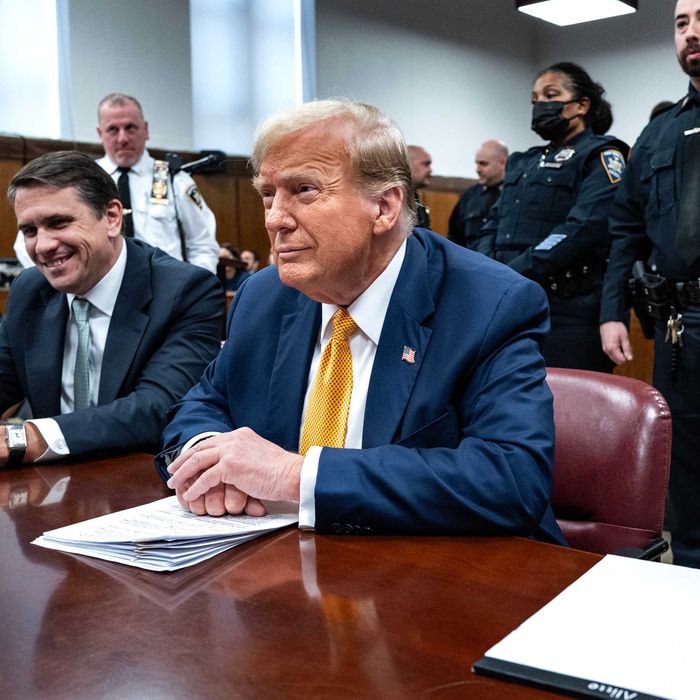
When Donald Trump won his race to recapture the presidency, he also outran the law. His two federal indictments have since been dropped in recognition of constitutional obstacles; his state prosecution in Georgia is on ice. His long-delayed sentencing in his Manhattan criminal case was finally held last Friday and had all the impact of a spitball. The president-elect beamed into the hearing via video link from Palm Beach, sitting in front of a bank of flags with his lead defense attorney Todd Blanche. From the big screen, Trump delivered a statement — a restrained one, by his standards — in which he reiterated his usual complaints of persecution and expressed zero contrition. Justice Juan Merchan, who presided over his trial and jury conviction on 34 felony counts of falsifying business records, delivered a perfunctory summary of Trump’s crimes before acknowledging the practical impossibility of punishment and granting him an unconditional release. “Sir,” Merchan concluded, “I wish you Godspeed as you assume your second term in office.” With that, the judge abruptly stood up and made for a side exit, as if he had just heard the squeal of his tea kettle.
Trump’s face lingered on the screen for a moment. He looked more hale, thin, and young than he had as a moody defendant during the seven long weeks he sat in Merchan’s courtroom. He had lost the trial, but he had won the election, resoundingly, just as he had always said he would. Then, with a blippy sign-off chime, Trump’s window on the screen went blank, and the chilly courtroom emptied. Trump’s Manhattan trial was officially complete; now on to the appeals.
This was not the conclusion many Americans — or at any rate, many Democrats — imagined in 2022, when they celebrated Trump’s four indictments as much-awaited proof that no man, even a former president, could forever avoid accountability. In hindsight, maybe it was always unwise to bet on the legal process to humble Trump, a lifelong master of litigation. Time has always been his most dependable legal ally, and his defense strategy was simple: Delay, filibuster, and appeal everything to the Supreme Court, where he could count on a friendly hearing from the conservative majority. Trump’s lawyers had petitioned the Court for an emergency injunction to halt the sentencing, arguing it was “constitutionally intolerable” for a judge to impose any sentence, however symbolic, on a president as he prepared to take office. It was a monarchical argument, asking the justices to invalidate a jury verdict just because attending the hearing would be slightly inconvenient and insulting to his dignity. But Trump had won the votes of four justices — a sign of just how much deference, and immunity, he can expect this time around as president.
Trump has had better results on a second front: his twilight struggle with Jack Smith, the special counsel who brought his two federal criminal indictments. Shortly after the election, Smith announced he was withdrawing the cases in deference to a longstanding understanding that a sitting president cannot be prosecuted. Throughout the transition period, Blanche and the rest of the Trump legal team have been engaged in a final round of litigation over Smith’s last remaining business: the preparation of a report on his investigation, which was mandated by the terms of his appointment. Trump’s legal team has been trying to prevent its release in order to keep his prosecutor from having his final say for the historical record.
Once again, Trump has found a way to turn the deliberative process of the legal system to his advantage. Last week, his attorneys filed an emergency petition with Aileen Cannon, the judge who presided over the federal case against Trump for allegedly refusing to return classified documents he had stashed down at Mar-a-Lago. Cannon, an always helpful Trump appointee, dismissed the indictments of Trump and two of his employees in July, ruling that Smith’s appointment as special counsel was unconstitutional. In their papers, Trump’s lawyers advised her that the Justice Department was planning to release Smith’s two-volume report on January 10. She issued a temporary injunction preventing the report’s release on the grounds that it could prejudice the case against Trump’s two co-defendants, who could theoretically still face trial. (The Justice Department is appealing her dismissal with regard to their case because her unorthodox decision could set a bad precedent, threatening the legitimacy of all special counsels.)
The Justice Department conceded, saying it would publicly release only the volume covering the other half of Smith’s investigation, involving the January 6 assault and Trump’s attempts to overturn the result of the 2020 election. Cannon left the injunction in place over the weekend before relenting on Monday afternoon and allowing the release of the January 6 volume, which went out early this morning. But she scheduled a hearing for later this week about the volume on the classified documents case, which will delay — and most likely foil — the department’s stated plan to distribute it to relevant members of Congress. Merrick Garland, the outgoing attorney general, has previously indicated that he is favor of disclosing what the special counsel found in his investigations, but the incoming president, who has called Smith “deranged,” has challenged the legitimacy and legality of the whole legal “witch hunt,” and wants to suppress as much as he can. As long as the litigation drags on, Garland’s hands will be tied. And Trump only needs to keep them knotted for another week.
Trump has nominated Blanche and other members of his personal legal team to take high-level positions at the Justice Department. If they are confirmed by the Senate, which looks like a certainty, they will come into Main Justice, the department’s Washington headquarters, with a mandate to clean house. And then what? Washington attorneys who deal with political cases have told me that lately they have been barraged with phone calls from career civil servants, asking whether they should quit or wait to be fired so they can then sue for wrongful termination. Some of those who sought to impose consequences on Trump are now wondering if they might lose more than just a job. “I think it’s time for people to stop thinking that this is just hyperbole and rhetoric,” said Mark Zaid, an attorney who represented (among others) the whistleblower who set off the Ukraine impeachment scandal. Trump has openly suggested that he would approve of prosecutions of those who investigated him if “they were crooked, if they did something wrong.” Some Trump allies have been ominously advising Smith to “lawyer up.” He announced his unceremonious departure from the Justice Department on Friday in a footnote to a legal brief. Some of the career officials who staffed his office have followed his lead, including Jay Bratt, a counterintelligence specialist who aggressively pursued the classified-documents case.
In the portion of his report that was released this morning, Smith defended the legitimacy of his work, saying that were it not for the election, Trump surely would have been convicted for his “unprecedented criminal effort to overturn the legitimate results of the election in order to retain power.” But he also acknowledged that the course of the prosecution had been shaped—and in terms of its outcome, distorted—by external political factors. He placed the blame for this on Trump, who announced his decision to run again just as he was starting to feel the prosecutorial heat, setting himself on a high-risk course: he would be president, or a prisoner. “Given the timing and circumstances of the special counsel’s appointment and the office’s work,” Smith wrote, “it was unavoidable that the regular processes of the criminal law and the judicial system would run parallel to the election campaign.” Maybe there was no other choice for justice, but it looked ugly.
Smith’s legacy — and by extension that of Garland — is likely to remain a much-contested subject. The timing of Trump’s indictments was not in the hands of the defendant. Crucially, the attorney general waited two years before appointing a special counsel. He frustrated those — reportedly including President Biden — who wanted him to launch swift prosecutions of Trump and others who urged on the mob on January 6. Garland preferred an incremental case-building approach and acted carefully out of apparent concern for the institutional image of the Justice Department, which he had said he hoped to lift above politics. Garland’s deliberation only ensured that when the prosecutions came, they would end up coinciding with Trump’s third presidential campaign. Arguably, the indictments were a net plus to Trump, providing him a huge fundraising boost and rallying his base to him. Proponents of prosecution hoped that the narrative of Trump’s reckoning with justice would culminate with a vindicating affirmation of the rule of law. Instead, millions of voters came to the conclusion that Trump’s alleged crimes — keeping secret documents just because he wanted them; plotting to subvert the peaceful transfer of power just because he could — were nothing disqualifying. Trump claimed “they” wanted him in prison, “they” wanted to assassinate him, because he was dangerous to all the right people. He turned his mug shot into merch. He fought the law, and he went three for four.
The cost of trying, and failing, to pursue accountability was not just political. Trump’s prosecutions set new legal precedents, most tangibly when it comes to presidential immunity for official acts. One year ago, I watched three judges on a Washington appeals court panel recoil in disbelief as John Sauer, a Trump attorney, admitted that by the logic of his client’s sweeping claim, a president could order the military to assassinate a political rival without legal consequence. (Sauer is now headed to the Justice Department, as Trump’s nominee for solicitor general.) By the summer, in a 6-3 vote, the Supreme Court had affirmed Trump’s position. At oral arguments, Justice Neil Gorsuch had called for making a “rule for the ages.” Armed with the new precedent, future residents of the White House, starting with Trump, will be able to conduct themselves according to Richard Nixon’s principle: When the president does it, it’s not illegal.
Our next president has his own rule, one that prosecutors at his Manhattan criminal trial found so incriminating that they entered it into evidence. “My motto is: Always get even,” Trump wrote in his 2004 book Trump: How to Get Rich. “When somebody screws you, screw them back in spades.” Once he is inaugurated next week, we will begin to see what he meant when he promised his supporters he would be “your retribution.” Maybe he will be magnanimous, as he has at times suggested, getting his revenge by merely living well. Or maybe, as usual, he really means to do what he says. The Trump era has been defined by an endlessly recursive cycle of investigation and counter-investigation: Comey begat Mueller who begat Durham; the Biden-Burisma probe led to the Ukraine impeachment; the January 6 committee hearings were counterbalanced by the weaponization-of-government committee hearings. Now the wheel has spun round again, and so here at the end of Trump’s trials, we find ourselves back at the beginning.






